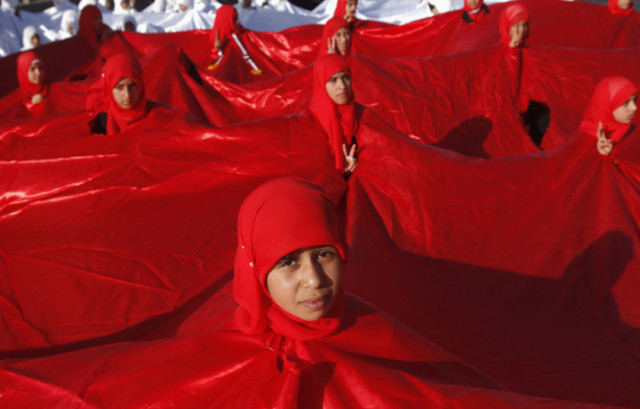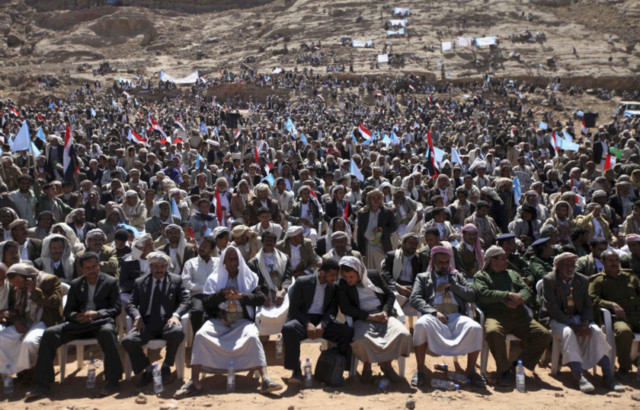
Sana’a: Tens of thousands of Yemenis gathered Monday in Sana’a to celebrate the second anniversary of the launch of nationwide protests that pushed president Ali Abdullah Saleh out of power after 33 years in office.
Jubilant Yemenis gathered in the Sitin street, a capital artery that was scene of frequent protests and confrontations between anti-regime demonstrators and police and militamen backing the former leader.
The rally was organised by the committee of the Youth Revolution, which considers February 11, 2011 the day the uprising against Saleh’s rule erupted, though demonstrations had begun in January 2011 taking cue from protests in Tunisia and Egypt.
“Hold your head up, you are a free Yemeni,” chanted the crowds gathered in Sitin, evoking a slogan chanted during the protests against Saleh, an AFP correspondent reported.
“February 11 is a day that Yemenis will always celebrate,” said a statement released by the organising committee.
The statement urged the government, in which the former opposition now holds 50 per cent of the seats, to look after the families of the “martyrs” and “complete the treatment for the wounded.”
It also called for a “trial for the killers of the youths, and a return of the people’s funds that were stolen.”
Saleh agreed in November 2011 to step down as per a Gulf-brokered and UN-backed initiative which stipulated presidential elections in February 2012 that brought Abd Rabbo Mansour Hadi, Saleh’s then deputy, as an interim president for two years.
The initiative granted Saleh and his aides immunity from prosecution but it demanded a complete restructuring of the military and security forces and a national dialogue to draft a new constitution and electoral law for general polls in 2014.
Hadi last week set March 18 as the date for the much-anticipated dialogue.
The committee organising Monday’s rally in Sana’a welcomed the dialogue.
“We announce from here that we welcome setting March 18 as the date for dialogue between Yemenis,” the head of the committee, Mohammad Al Sabri told demonstrators, implying that they will take part in the talks.
A similar rally was held in Taez, Yemen’s second city, which was also scene to large anti-Saleh protests, as well as bloody confrontations, during the uprising.














